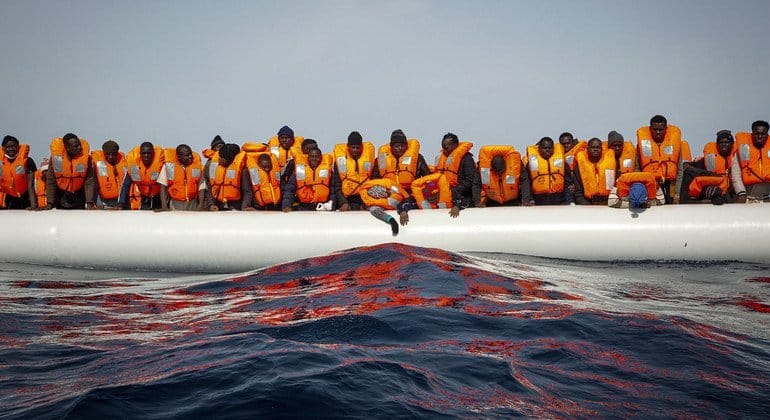Here’s the translation into American English:
Since 2014, over 52,000 migrants have lost their lives in their attempt to escape humanitarian crises, according to a recent report from the International Organization for Migration (IOM). The report highlights that, in total, more than 72,000 deaths and disappearances have been documented on migration routes around the world during this period, with nearly 72% of these tragedies affecting individuals from countries in critical conditions.
The statistics are alarming: more than 39,000 deaths have been recorded in conflict zones, where people face extremely dangerous situations. Additionally, around 13,500 migrants have died trying to flee wars or natural disasters. IOM Director General Amy Pope has noted that these numbers are a painful reminder of the desperate efforts of individuals when insecurity and lack of opportunities close all doors.
Particularly concerning is the situation in the Mediterranean, which remains the deadliest migration route, with approximately 25,000 missing at sea. The report also details that more than 3,100 Rohingya from Myanmar have died in shipwrecks or during attempts to cross into Bangladesh. In the Americas, at least 11,154 migrants have lost their lives on their journey.
The year 2024 has been classified as one of the most tragic in terms of migrant deaths, surpassing 8,700 fatalities for the second consecutive year. Julia Black, coordinator of the IOM’s Missing Migrants Project, warns that migrants are often overlooked in the statistics and that the actual number of deaths could be even higher, given the lack of accurate data, especially in war- and disaster-affected areas.
The IOM has emphasized the urgent need to establish safe, legal, and orderly migration pathways. Amy Pope highlights the importance of investing in the creation of stability and opportunities in communities of origin, so that migration is seen as an option rather than a necessity. The organization calls on states and humanitarian partners to collaborate in addressing crises, ensuring that migrants are not excluded and have access to assistance and health services, as well as data systems that track and protect at-risk individuals.
Source: MiMub in Spanish
